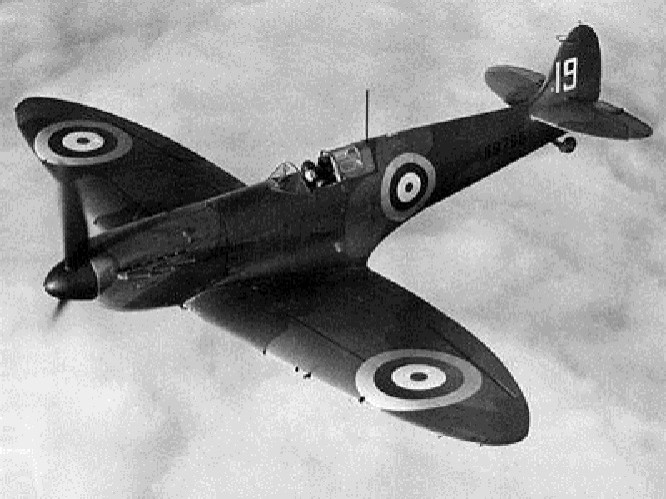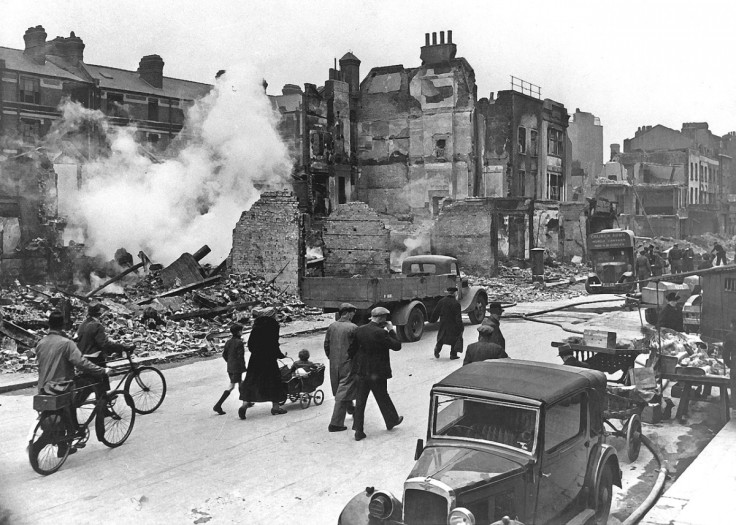Battle of Britain Anniversary: Churchill's Speech, Facts and History of German Air Force Campaign

The 74<sup>th anniversary of the start of the Battle of Britain is marked today, with the following three months acting as a turning point in WWII.
The name came from a speech given by then Prime Minister Winston Churchill on 18 June 1940.
In the speech, Churchill spoke of how Britain had retreated from France. The government had evacuated as many British troops as possible and 'Operation Dynamo' ended on 4 June.
Speaking of the setback, Churchill said: "However matters may go in France or with the French Government, or other French Governments, we in this Island and in the British Empire will never lose our sense of comradeship with the French people.
"If we are now called upon to endure what they have been suffering, we shall emulate their courage, and if final victory rewards our toils they shall share the gains, aye, and freedom shall be restored to all.
"We abate nothing of our just demands; not one jot or tittle do we recede. Czechs, Poles, Norwegians, Dutch, Belgians have joined their causes to our own. All these shall be restored.
"What General Weygand called the Battle of France is over. I expect that the Battle of Britain is about to begin."
History

The Battle of Britain was the air campaign waged by the German Air Force against the UK. After France surrendered to Germany, Hitler had set his focus on Britain. Hermann Goering, the head of the Luftwaffe, was told that he must attack the RAF to such an extent that "it can no longer muster any power of attack worth mentioning against the German crossing".
The Luftwaffe began by attacking ships in the English Channel, followed by coastal towns and defences. In August, Goering began work on destroying the RAF by attacking airfields and radar basis. He also engaged in air battles with the RAF but became perturbed when British planes were able to fight off attacks. Instead, he shifted his focus to London and other cities.
On the night of 24 August, a lost bomber dropped bombs on London and Churchill reacted by sending aircraft to attack Berlin. Hitler gave express orders allowing the bombing of London. During raids against cities across Britain, the RAF was able to rebuild its strength.
At the time the Luftwaffe thought the RAF was on the edge of exhaustion when in fact it had recovered and was stronger than ever before. On 15 September, Luftwaffe raids were met with strong and unexpected opposition, shattering German morale.
Realising its miscalculation, the Luftwaffe realised they could not win in the air and Hitler suspended the operation indefinitely. Air raids continued and towns and cities continued to be attacked, however. Both sides took massive casualties, with the Luftwaffe losing almost 2,500 aircrew.
By 31 October, the British army was confident there would not be an invasion and had won the battle in the air over the UK. It was one of the first times Nazi Germany had been defeated in battle and is seen as a turning point of WWII.
Facts

Exact numbers for how many aircraft were shot down during the Battle of Britain cannot be known because both sides would downplay their losses. However, it is estimated that the RAF lost 1,023, while the Luftwaffe lost 1,887.
The Blitz, which continued long after the end of the Battle of Britain, resulted in over 40,000 civilian deaths and over 50,000 injured.
The RAF flew with Hawker Hurricane and Supermarine Spitfire fighters, which were faster than the Messerschmitt. While German forces had the advantage with plane numbers, pilots and experience, the speed of the planes and the home territory meant the armies were fairly evenly matched.
Battle of Britain Day (15 September) saw the RAF manage to defeat German bomber formations. They shot down 61 German planes – half what the RAF lost.
Three RAF personnel were awarded the Victoria Cross during the Battle of Britain. Flt Lt James Nicolson was severely wounded and burned but stayed with his aircraft long enough to attack the aircraft that had attacked him. Flt Lt Roderick Learoyd managed to fly his crew back home safely after continuing his attack in a badly damaged Handley-Page Hampden.
Sgt John Hannah, a wireless operator, was hit by flak and set on fire. He stayed with the aircraft and put out the fires on the plane and then himself, allowing the pilot to fly the aircraft home.
© Copyright IBTimes 2025. All rights reserved.






















